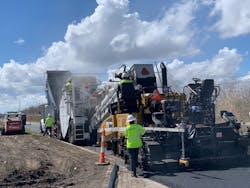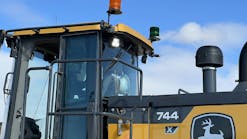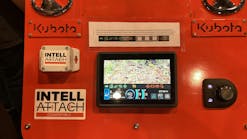A Fleet Master Sounds Off On the Latest Tech
Ben Tucker, CEM, director of equipment and facilities for Barriere Construction in Metairie, Louisiana, is always thinking about how technology might increase his fleet’s efficiencies.
Construction Equipment recently asked the 2021 Fleet Masters large-fleet winner his views about three technologies on the come, including remote-control yellow iron, electric equipment, and drones.
“I like [the concept] of remote control,” Tucker says. “I think it’s more reliable than a human being. As long as you’re giving it good data, you should get good results. It’s like 3D paving in that if you build the right model, you’re going to get positive results. You build the wrong model and you’re not going to get what you want.”
He also sees how it might transform the work force.
“You might see where an 8-man crew jumps down to a 6-man crew, say on a pipe-laying crew where you might just have a skid steer working by remote control,” Tucker says. “The guy that’s working on top of the trench, he can also run [the skid steer], he can see what’s going on, and he can do multiple tasks. I think it will bring people multiple skill sets instead of one skill set.”
Tucker is a little less convinced on electric equipment, and it brings to his mind more questions than immediate answers.
“Personally, I’m a little nervous with that, especially if you’re running a 24-hour operation,” he says. “When are you going to get time to charge this thing back up? Because you’ve got to have an extra piece [for charging equipment]. Or, maybe you get into a situation like they had in Texas when a freeze comes and knocks the whole grid out. What are you going to do then?
“As far as efficiency and running, if you’re on a set time schedule, then I think it’s achievable,” Tucker says. “But if you’ve got an asphalt plant and you’re running 24 hours a day, how are you going to keep this thing running and charged up?
“Where and how are we going to fit in with this [technology]?” Tucker says. “I think it will help with security some, too, believe it or not, because every job site is going to have some kind of power station to charge these things. Are you going to have a generator charging everything? Are you coming off the grid with it? Maybe solar technology is going to be there. But, if it’s working over the day, how’s it going to charge at night?”
Finally, Tucker says he has had success using drones for takeoffs on some jobs, and in gravel pits and around asphalt plants for inventory control.
“We have one drone so we have to schedule it,” he says. “We have four people licensed to fly them in the areas we operate. We lease those; we don’t own them.”





